This Easy Pan Fried Deer Heart Recipe is for all you lovers of flavorful, tender, and juicy venison! This recipe makes delicious use of the often-underutilized organ meat from your deer, elk, moose, or antelope harvest.
I always strive to use as much of the animals I can from a successful hunt. Fresh organ meat like liver and kidneys are always on the menu while I patiently dry age the hindquarters for about two weeks before we begin to start eating some of those mouthwatering tender venison steaks.
If you’ve never tried a deer heart, you’re missing out. This deer heart recipe rivals any venison steak dish in taste and doesn’t need any time in a marinade. Just some good kosher salt and some coarsely ground black pepper and a simple pan-fry and it’s absolutely delicious.
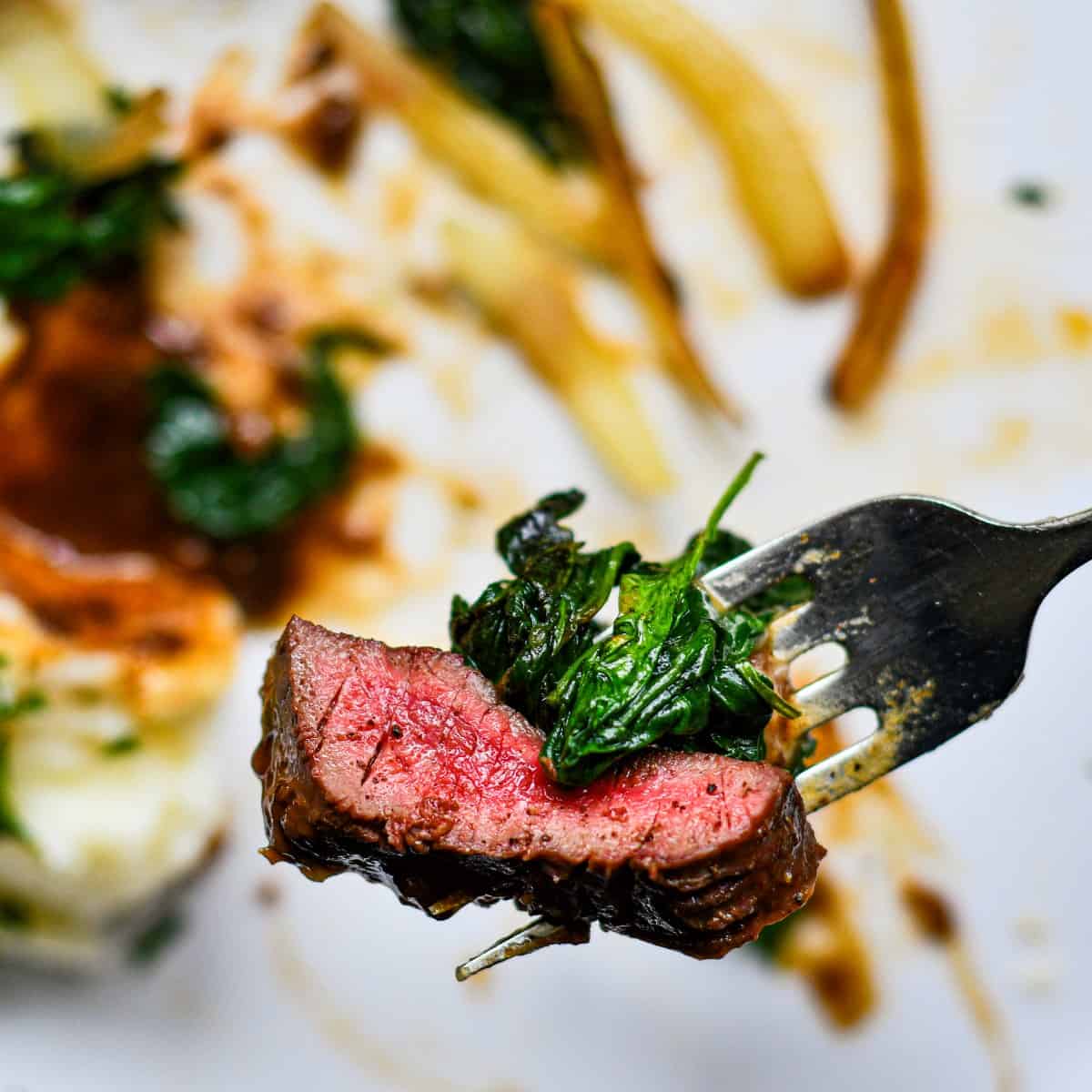
Why This Deer Heart Recipe Works for Weeknight Meals
- Quick cooking the deer heart allows it to stay tender and juicy. Serve it with a simple family friendly accompaniment like sauteed spinach and mashed potatoes. Gravy also helps to balance out the meatiness of the heart.
- Simple seasonings like kosher salt and black pepper allow the full flavor of this deer heart recipe to shine.
- Deer heart and other venison hearts are low in fat and high in vitamins and minerals. This makes it a healthier option than the beef roast or steaks you buy at your local grocery store.
What Does Deer Heart Taste Like
Deer hearts and other venison hearts have a robust meaty flavor and firm texture. It's comparable to lean steak like you'd get from a venison top round or venison backstrap.
You don't have to worry about any weirds smells or textures. I can tell you from personal experience, a deer heart is significantly easier to feed to my wife (a Minnesota farm girl) and our 9-year-old daughter. It's definitely more mild than other organ meats like a deer liver or deer kidney.
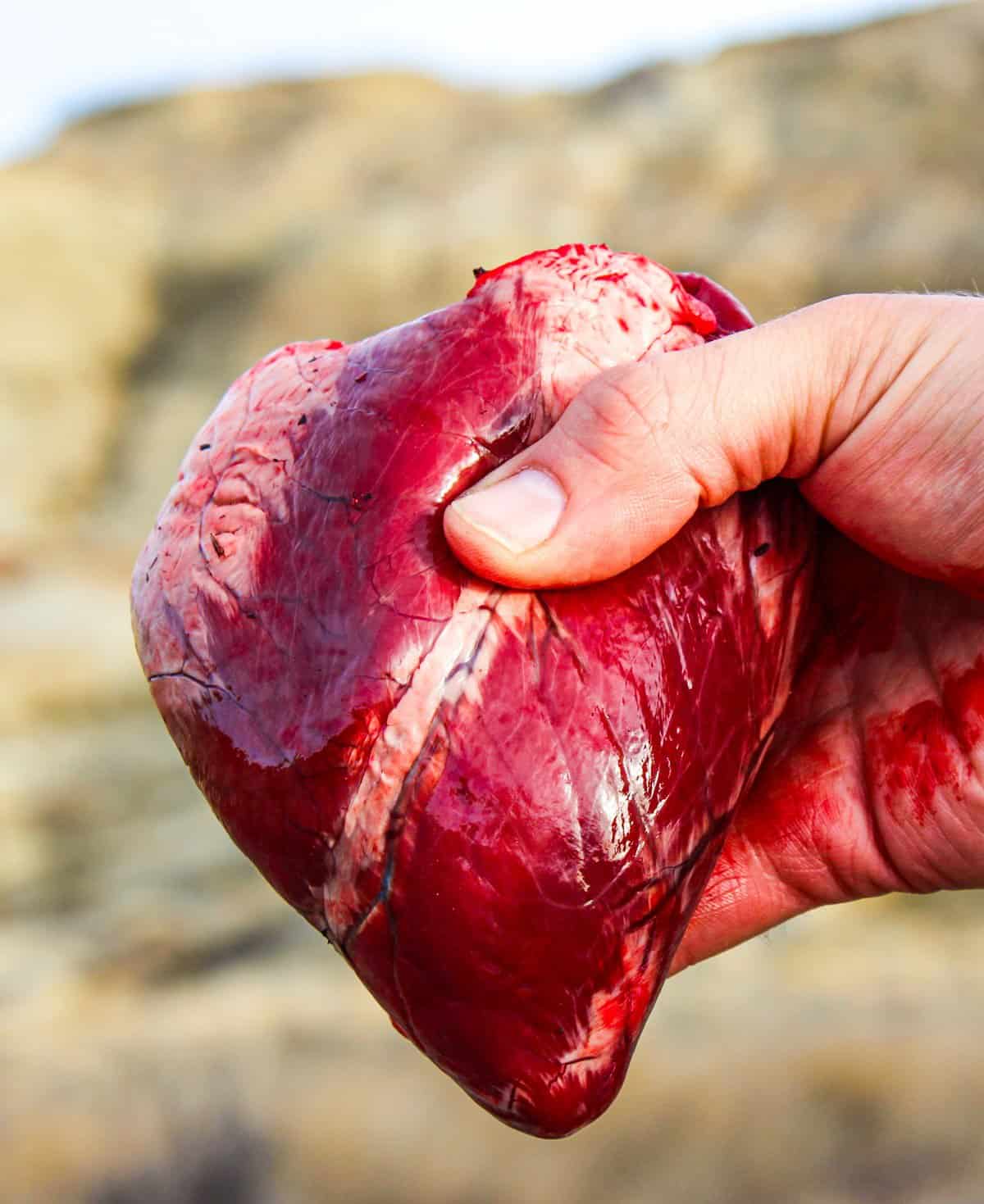
How to Clean A Deer Heart
Start by trimming the heart. Begin by using a sharp knife to slice off the arteries sticking out of the top of the heart. Then you want to move on to removing any large pieces of visible fat from the heart. Most venison hearts are pretty lean, and you generally only find some fat near the top. Some other recipes will recommend you trim all of the fat off and discard it. But it's completely edible, although too much will give you that unappetizing tallow taste in your mouth. I like to leave a little fat on. Searing it over high heat and eat it right away. This will prevent that chalky taste at the roof of your mouth.
Now look down at the top of the deer heart. Remove any blood that might remain within the four chambers of the heart you are looking down into. If you skip this step, the blood will give the meat an iron-like taste that isn't very pleasant. Remove the blood by putting your fingers inside each of the heart valves under cold running water. As you do this gently squeeze, and wait until the water runs clear. This will only take about 2 minutes.
Use the holes in the heart as a guide to slice the heart into a few thick and flat pieces of meat. Now you'll see a bunch of tiny spider-like tendons. Remove and discard these. If you find any more globs of blood at this point, give the meat another quick rinse underneath cold running water so you are left with nice clean cutlets that are visually appealing and something you and your family will want to eat.
How to Cook Deer Heart
- After you clean and trim the heart, pat dry with a paper towel and place the pieces on a cutting board and tenderize them using a Jaccard meat tenderizer. I always use this same process with all of the venison steaks I prepare for myself and for customers who hire me to butcher their deer.
- Now using a sharp knife, score both sides of each deer heart cutlet by making shallow slashes about an inch apart. This will help the meat absorb the flavors of the salt and pepper. It will also encourage the Maillard reaction so you get a nice brown crust, as well as preventing the thin cut of meat from curling and distorting in shape during cooking over extreme high heat.
- Preheat your oven to 450 degrees F and place a large cast iron skillet in the oven for about 5 minutes until it's smoking hot. Turn on a stovetop burner to medium-high heat.
- Generously season the venison heart cutlets with kosher salt and black pepper.
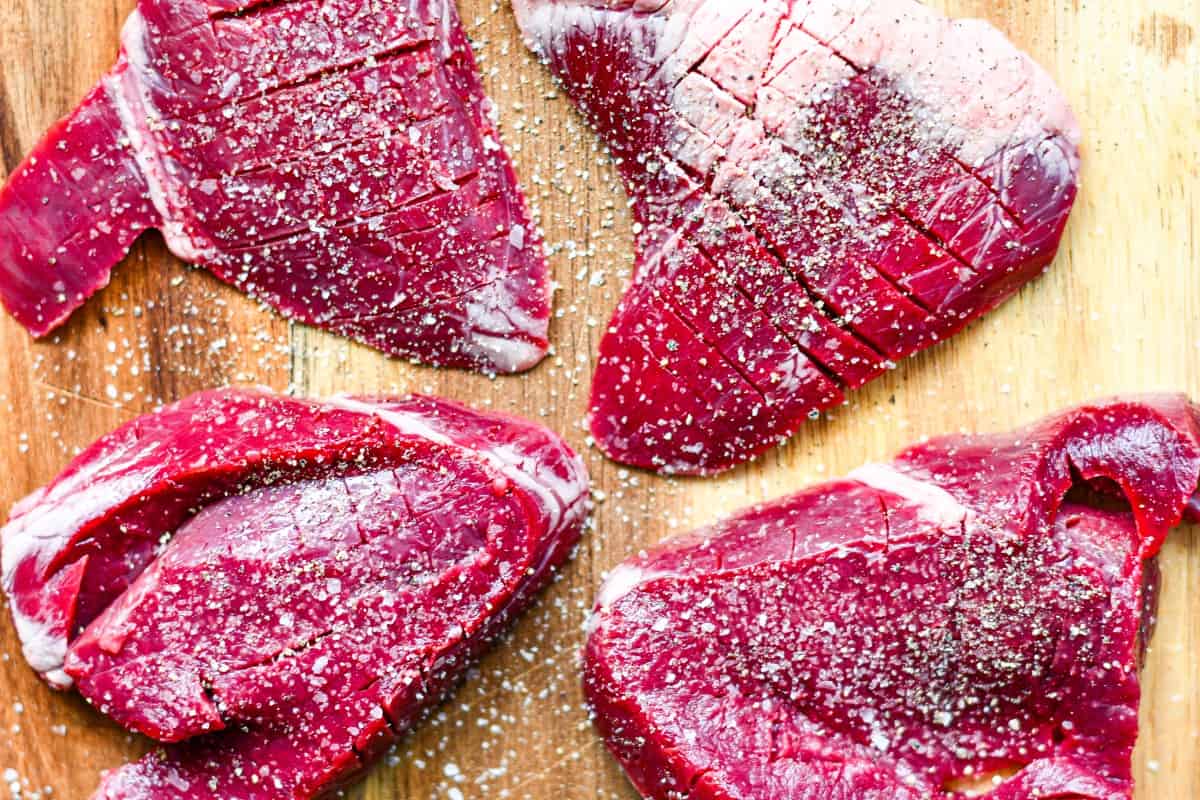
- Using an oven mitt, carefully remove the hot cast iron skillet from the oven and place it on the hot stovetop burner. Add the canola oil to the skillet, carefully swirl it around to coat the pan, and then add the deer heart cutlets. If you are using a bigger heart from an elk or moose you'll need to cook the meat in batches - don't overcrowd the pan.
- Let the venison heart cutlets sizzle for about 2 minutes, then use tongs to flip it over and cook about 2 more minutes. This is a quick cook because we are trying to get a perfect medium rare so the meat is tender and juicy!
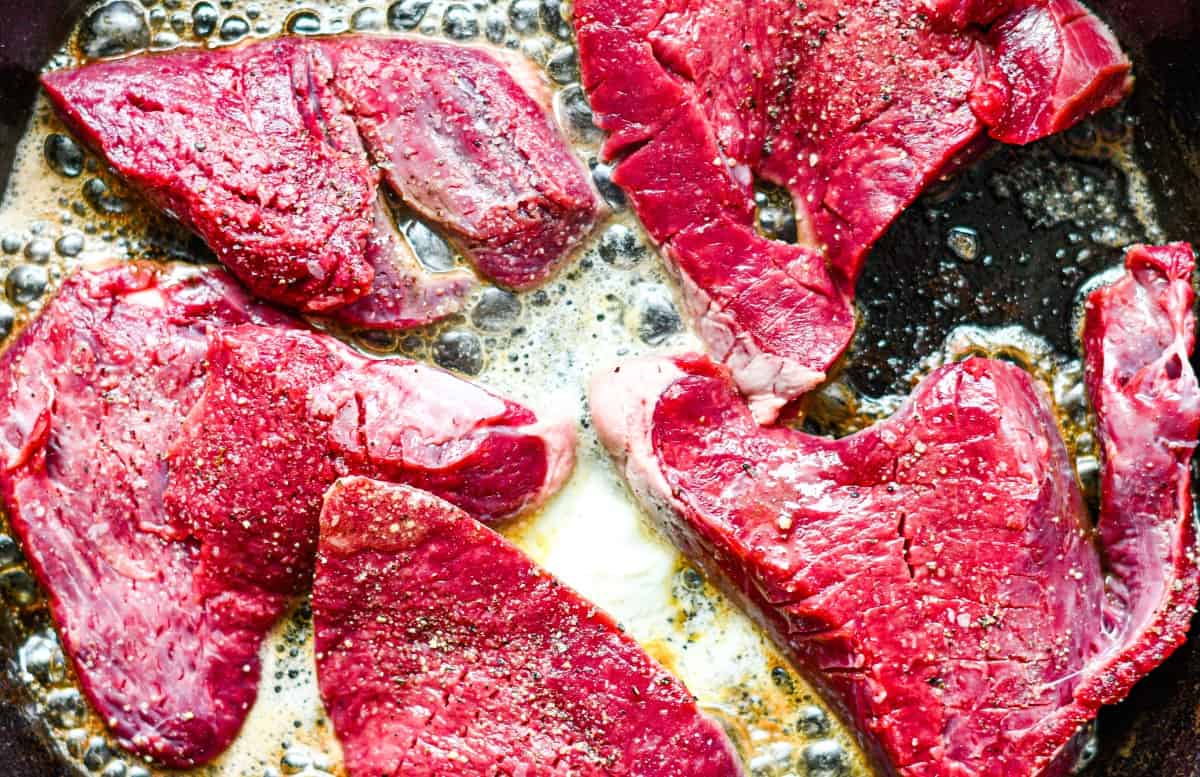
- Press down gently to ensure even contact between the meat and the pan. When the meat has developed a dark brown crust on both sides, add the butter to the skillet. Swirl it around to coat the meat, and immediately remove the skillet from the heat. After the meat soaks in the butter for 1 minute, transfer it to a cutting board. Tent lightly with foil. Let rest 5 minutes. The meat will continue cooking after being removed from heat.
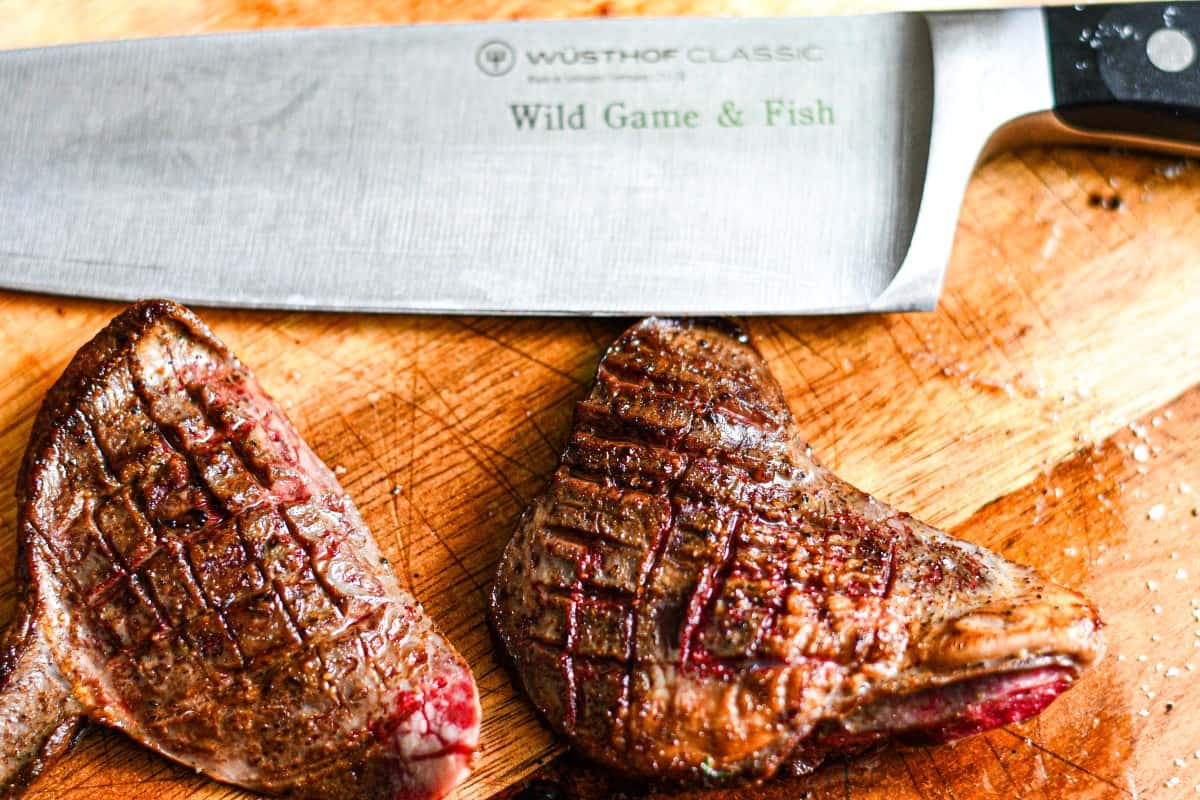
- Thinly slice with a sharp knife, cutting away from your body. Make sure to slice across the grain of the meat.
- Serve immediately with your favorite sides such as sauteed spinach, mashed potatoes and gravy, sauteed mushrooms, or asparagus.
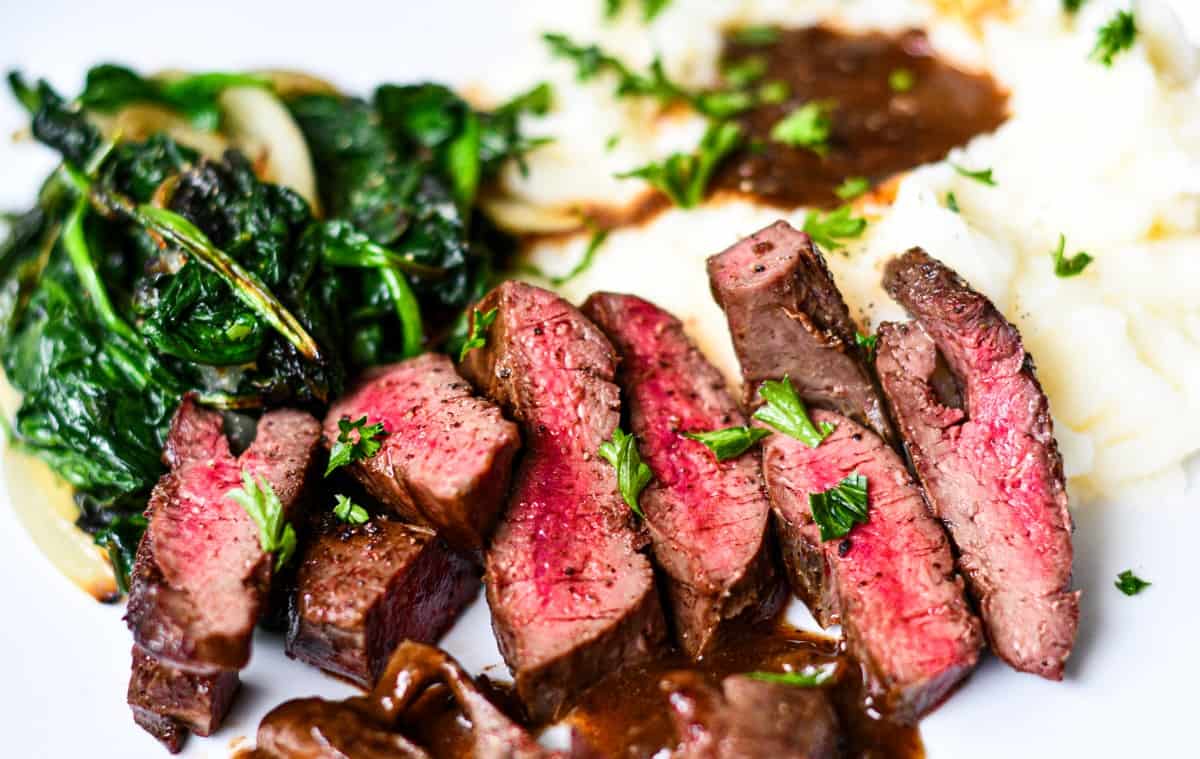
How Many Servings In A Deer Heart
With a typical deer heart from a white-tailed deer or a mule deer, one heart will feed two people. An antelope heart is small and usually is only enough to feed myself. Lucky me! An elk heart or a moose heart will feed somewhere between four to six people.
Wild Game For Weeknight Dinners
After a long day of work, it's not always easy to face your kitchen and whip up dinner. But I hope this Easy Pan Fried Deer Heart Recipe and my other venison recipes will give you inspiration and motivation you need to get excited about cooking every night.
If you are headed our way for North Dakota deer season, check out the North Dakota Game & Fish Department website. And if you want me to come along with you as your camp cook, photographer, or butcher, you can find out more details here.
Join Our Wild Game Cooking Community
Sign up here to receive a new recipe in your email inbox every Tuesday morning!
DID YOU MAKE THIS RECIPE
If you make this Easy Pan Fried Deer Heart Recipe, tag @wildgameandfish so I can share it on my Instagram stories.
Did you enjoy this Deer Heart Recipe? Be sure to leave a 5-star rating RIGHT HERE!
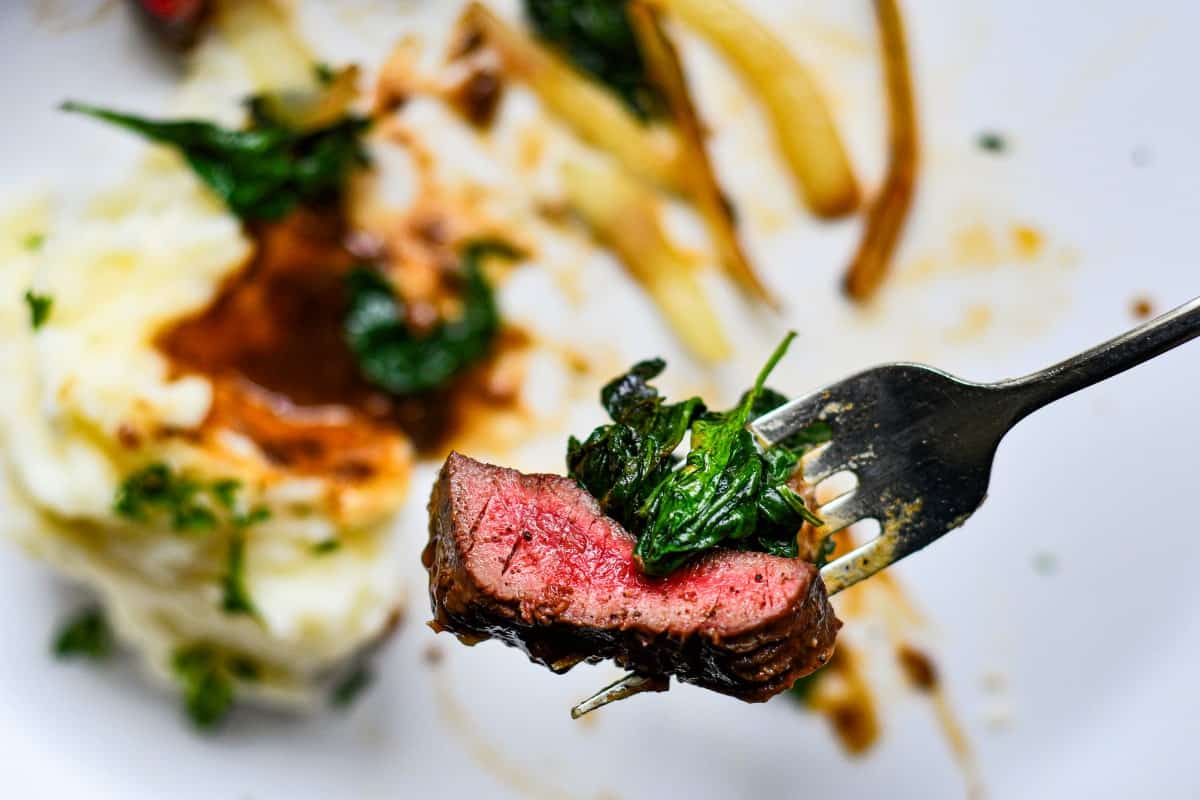
Easy Pan Fried Deer Heart Recipe
Ingredients
- 1 deer heart (or 1 antelope, elk, or moose heart)
- kosher salt
- black pepper
- 2 tablespoons canola oil
- 2 tablespoons butter
Instructions
- After you clean and trim the heart (see directions above), pat dry with a paper towel and place the pieces on a cutting board and tenderize them using a Jaccard meat tenderizer.
- Now using a sharp knife, score both sides of each deer heart cutlet by making shallow slashes about an inch apart.
- Preheat your oven to 450 degrees F and place a large cast iron skillet in the oven for about 5 minutes until it's smoking hot. Turn on a stovetop burner to medium-high heat.
- Generously season the venison heart cutlets with kosher salt and black pepper.
- Using an oven mitt, carefully remove the hot cast iron skillet from the oven and place it on the hot stovetop burner. Add the canola oil to the skillet, carefully swirl it around to coat the pan, and then add the deer heart cutlets. If you are using a bigger heart from an elk or moose you'll need to cook the meat in batches - don't overcrowd the pan.
- Let the venison heart cutlets sizzle for about 2 minutes, then use tongs to flip it over and cook about 2 more minutes. Press down gently to ensure even contact between the meat and the pan.
- When the meat has developed a dark brown crust on both sides, add the butter to the skillet and immediately remove the skillet from the heat and transfer it to a cutting board and tent lightly with foil. Let rest 5 minutes. The meat will continue cooking after being removed from heat.
- When ready to serve, thinly slice with a sharp knife, cutting away from your body and with the top edge of the knife leaning toward your body. Make sure to slice across the grain of the meat.
- Serve immediately with your favorite sides such as sauteed spinach, mashed potatoes and gravy, sauteed mushrooms, or asparagus.
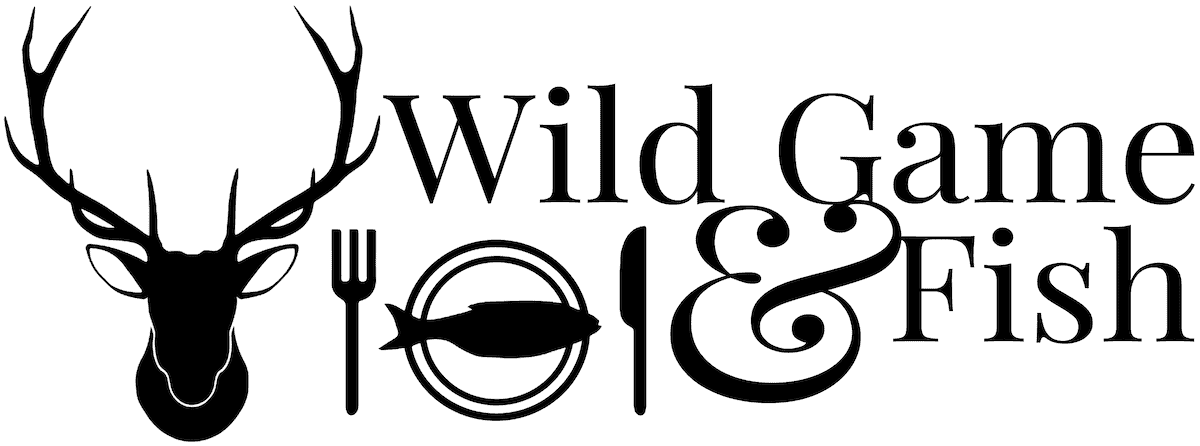
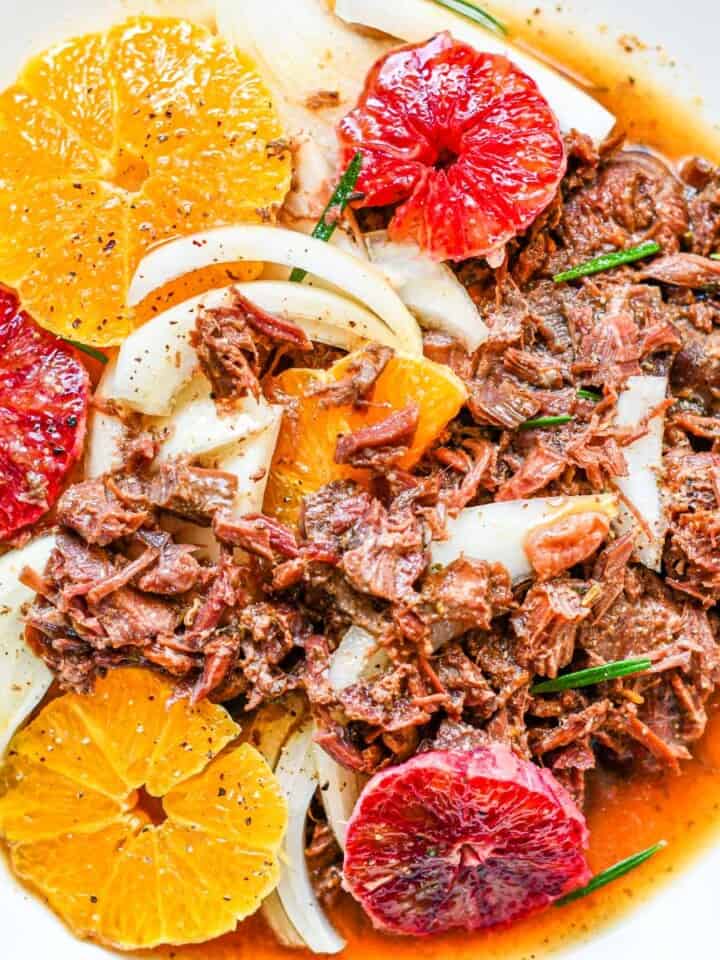
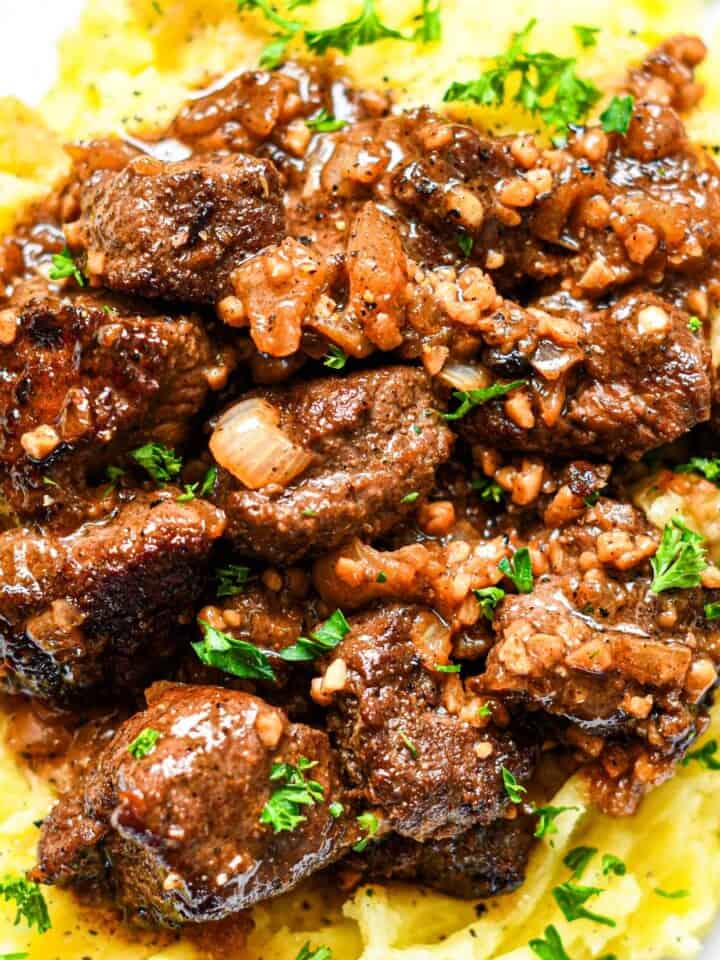
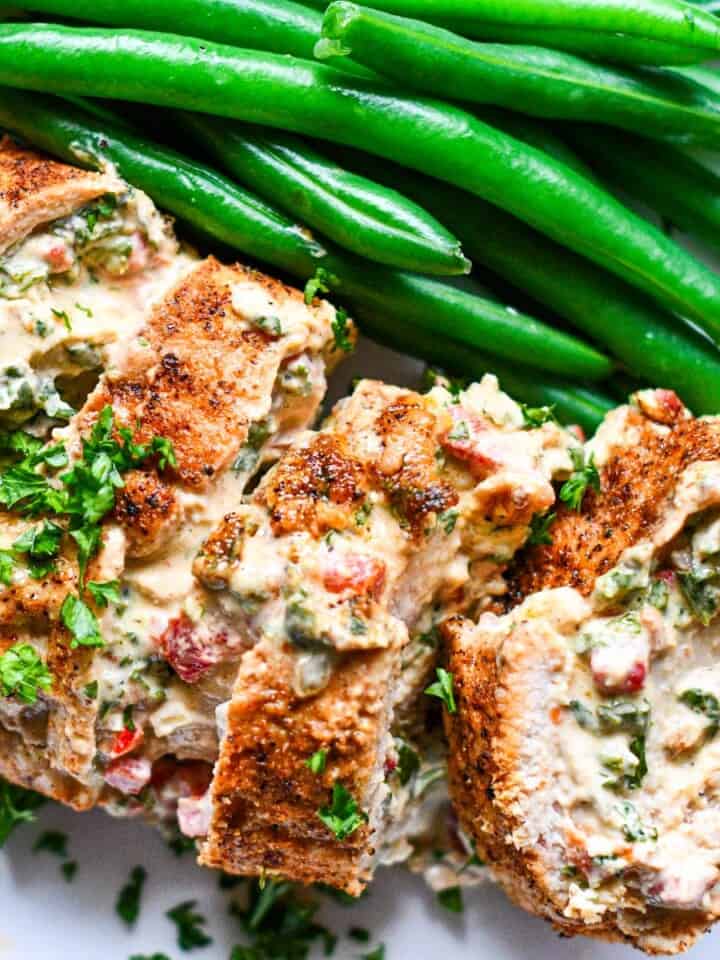
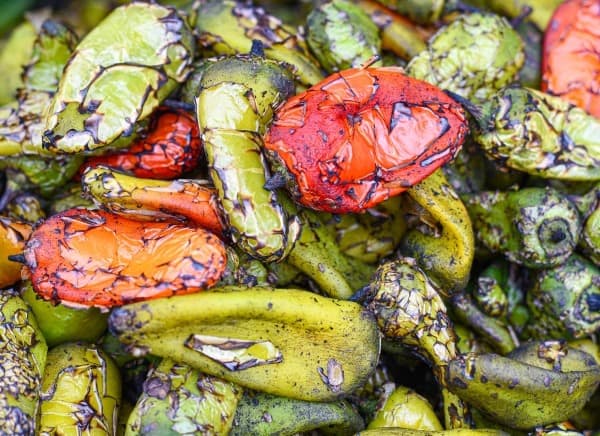
Kerry Whipp says
The heart is the first meal we have after harvesting a deer. I make a stuffing filled heart roll, but I'm excited to give this recipe a try. I'll just have to wait until next season. Thank you for sharing.
Jeff Benda says
Let me know if you try it and what you think. I've got a few more deer heart recipes coming so keep an eye out for them in the coming months.
Suzi says
The recipe looks delicious and fairly easy to accomplish. However if I don’t have a tenderizer and I do have a heart.. Any suggestions?
Jeff Benda says
Great question Suzi! Scoring the heart is already going to help tenderize the heart because cutting the meat severs the long fibers that make it tough to chew. But another great thing you can do to help tenderize the meat is to sprinkle it with salt and pepper on both sides 30 minutes prior to cooking instead of just a few minutes before.
George Selvestra says
I will try this great sounding recipee this season!
Char says
First time I've tried cooking venison heart and it was delicious! I'll definitely be making this whenever we harvest a deer. Thank you!
Jeff Benda says
Thanks for leaving a comment and review! So glad to hear you like the deer heart recipe as much as we do!
Michael Slevin says
I still collect the hearts from my hunting partners field dressing remains. Many of my friends and children to whom I have introduced venison heart and this recipe rate pan seared venison heart above even excellent loin chops.
Cynthia Didio says
Perfect recipe for the heart I got from my son’s 8 point buck. So simple and delicious!!! My husband, who proclaimed before dinner that he isn’t much of an organ meat eater, LOVED IT!!!! I wouldn’t change a thing!
Becky Collins says
Easy for me to do as a novice wild game cook. It was the first organ meat I actually enjoyed eating. I will definitely do it again in my next harvest!
Paige says
My husband followed this recipe using venison heart, it was great! Will definitely make it again.
Jeff Benda says
Thanks Paige! Glad to hear you and your husband loved it as much as we do!